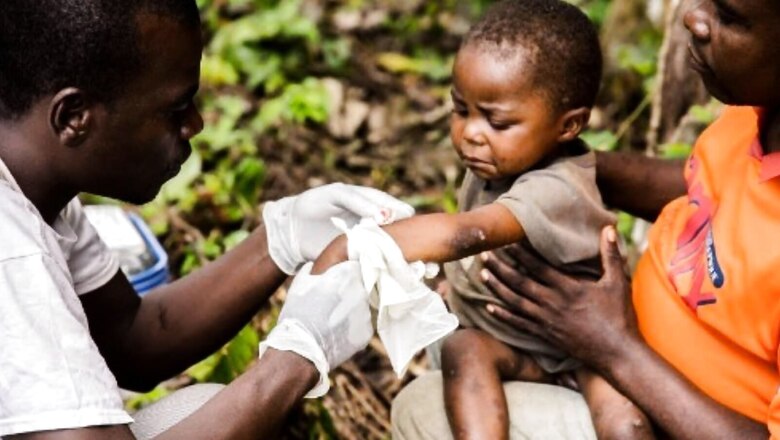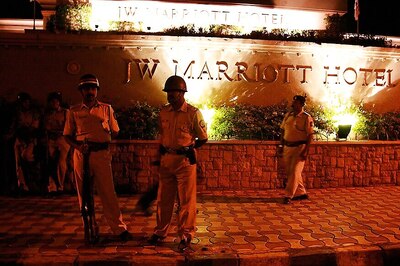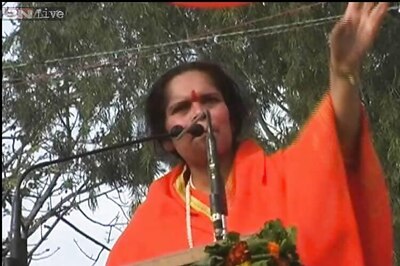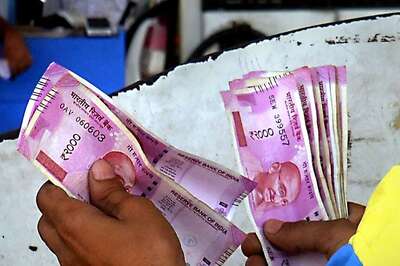
views
With around 100 confirmed cases in over 12 countries, monkeypox has triggered a fresh concern over a new health crisis even as the world is still grappling with the Covid-19 pandemic.
As of May 21, 92 laboratory confirmed monkeypox cases and 28 suspected cases with investigations on have been reported to the World Health Organization (WHO) by 12 member states that are not endemic to the virus. No associated deaths have been reported.
Cases have been reported from Australia, Belgium, Canada, France, Germany, Italy, Netherlands, Portugal, Spain, Sweden, United Kingdom and the United States of America.
Belgium has become the first country to make monkeypox quarantine compulsory for all confirmed cases.
SYMPTOMS, SPREAD
Bumps, rashes, fever and swollen lymph nodes – while the clinical presentation of monkeypox resembles that of smallpox, monkeypox is known to be less contagious than smallpox and causes less severe illness, as per the WHO.
The monkeypox outbreak has taken the community of scientists by surprise as such an outbreak is very rare outside Africa.
Globally, the situation is evolving and the WHO expects there will be more cases of monkeypox identified as surveillance expands in non-endemic countries. No such cases have been reported so far from India.
A research shows waning of immunity from smallpox vaccination could be one of the reasons behind the comeback of monkeypox virus. Globally, it is more than 40-50 years since mass vaccination drives were stopped.
“The current available evidence suggests that those who have had close physical contact with someone with monkeypox while they are symptomatic are at highest risk,” WHO said in its release on May 21.
The UN health agency will provide more technical recommendations on the handling of the disease in the coming days.
WHAT IS MONKEYPOX?
According to the WHO, monkeypox is a viral zoonosis – a disease caused by a virus transmitted to humans from animals. It has symptoms similar to smallpox patients, but it is usually clinically less severe.
The name ‘monkeypox’ originates from the initial discovery of the virus in monkeys in a Danish laboratory in 1958.
The first human case was identified in a child in the Democratic Republic of the Congo in 1970. However, in 1980, it was declared as ‘eradicated worldwide’.
The virus is transmitted from one person to another by close contact through lesions, body fluids, respiratory droplets and contaminated materials such as bedding.
The incubation period of monkeypox is usually 6 to 13 days, but can range from 5 to 21 days, WHO says.
STATUS IN INDIA
No such case has been reported in India.
“The world is in the third year of the pandemic and the WHO has already predicted an outbreak of another virus in form of monkeypox. Good news is there has not been a single case reported of monkeypox virus in India as of now,” said Dr Sandeep Bhatnagar, senior director and head of department, internal medicine, Paras JK Hospital.
“There is no need to panic with the gradual rise and spread of the virus in other countries because the WHO is working with the affected countries to provide guidance on how to manage the infection. Till then, we need to keep a watch on our hygiene, immunity, sleep and maintaining hydration. Besides, we need to follow all precautions for Covid-19 such as social distancing, hand washing and masking.”
India, last week, stepped up surveillance at all international entry points for monkeypox infections. Officers have been asked to collect a 21-day travel history of passengers coming from nations with monkeypox cases and check their current health status.
Union Health Minister Mansukh Mandaviya has directed the National Centre for Disease Control (NCDC) and the Indian Council of Medical Research (ICMR) to keep a close watch on the situation.
SMALLPOX VACCINES MAY WORK
Vaccines used during the smallpox eradication programme also provided protection against monkeypox.
Otherwise, Denmark-based biotechnology company Bavarian Nordic has a vaccine called Jynneos approved for both the monkeypox virus and smallpox.
In 2015, the Centers for Disease Control and Prevention (CDC) and the Food and Drug Administration (FDA) approved the use of Jynneos as a vaccine for the rare virus.
It is the only FDA-approved non-replicating smallpox and monkeypox vaccine.
The company, according to the reports in global media, has secured a contract with an unnamed European country to supply its smallpox vaccine.
However, America’s top healthcare agency CDC has said that because monkeypox virus is closely related to the variola virus that causes smallpox, smallpox vaccines can also protect against monkeypox.
Also, WHO said it is convening experts to discuss recommendations on vaccination.
While India declared itself free of smallpox in 1979 after it undertook the extensive immunisation programmes, “the manufacturing can be re-started if the need arises”, according to an industry official.
Read all the Latest India News here



















Comments
0 comment